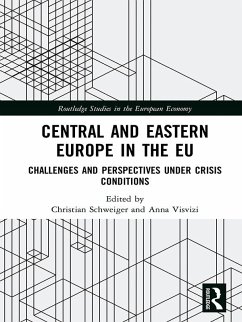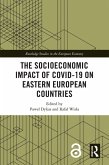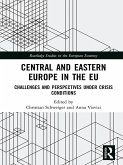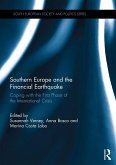This edited volume offers the first comprehensive and critical insight into how the CEEs position themselves in the EU's changing internal and external environment, their stance towards the European integration process under current crisis conditions, and what political and economic strategies they prioritize.
Dieser Download kann aus rechtlichen Gründen nur mit Rechnungsadresse in A, B, BG, CY, CZ, D, DK, EW, E, FIN, F, GR, HR, H, IRL, I, LT, L, LR, M, NL, PL, P, R, S, SLO, SK ausgeliefert werden.









